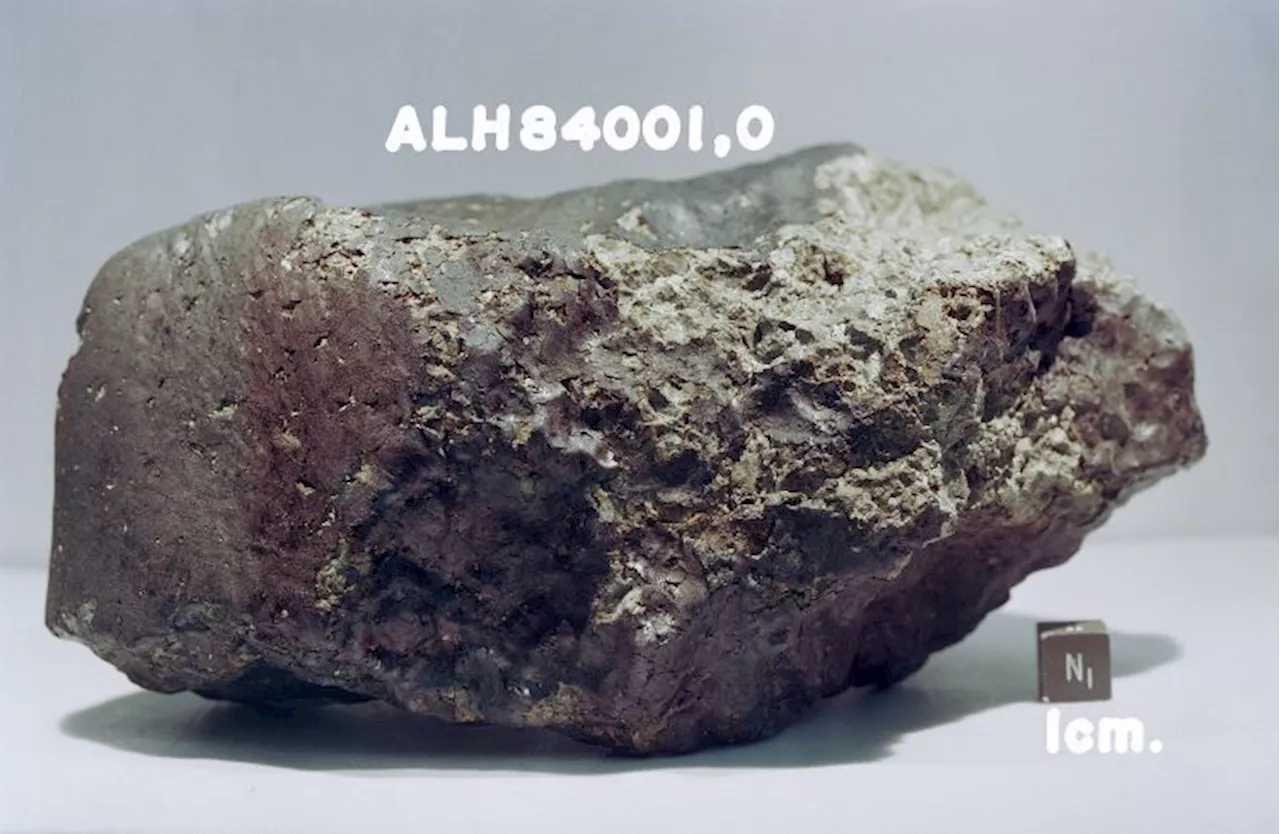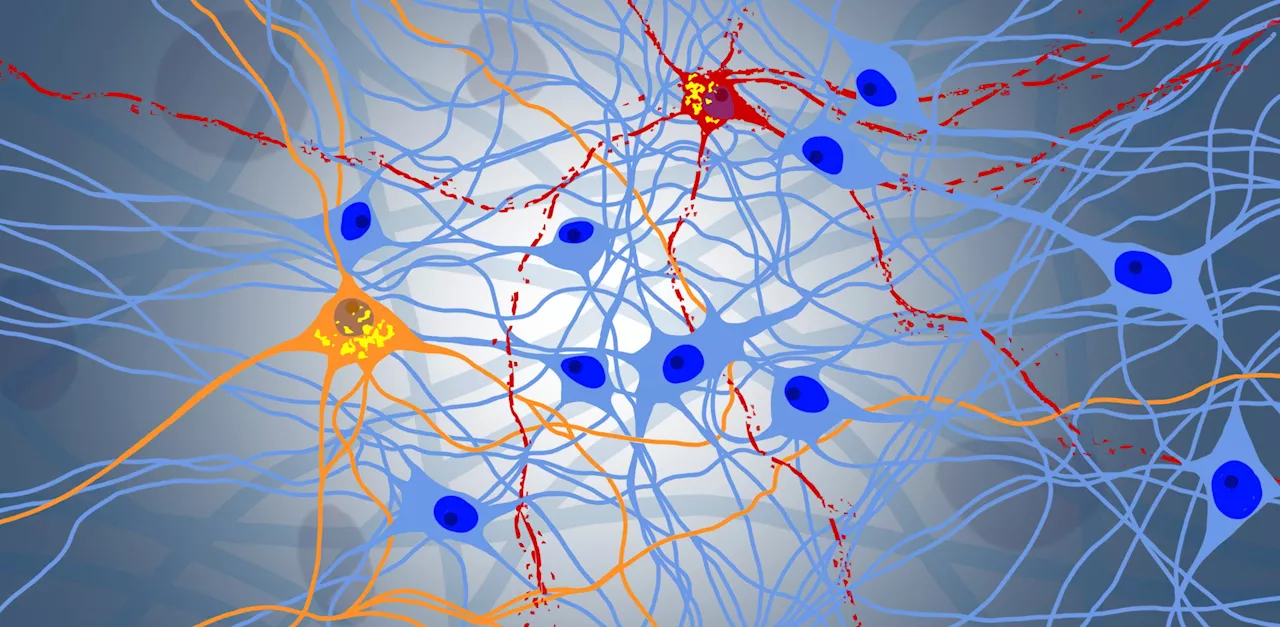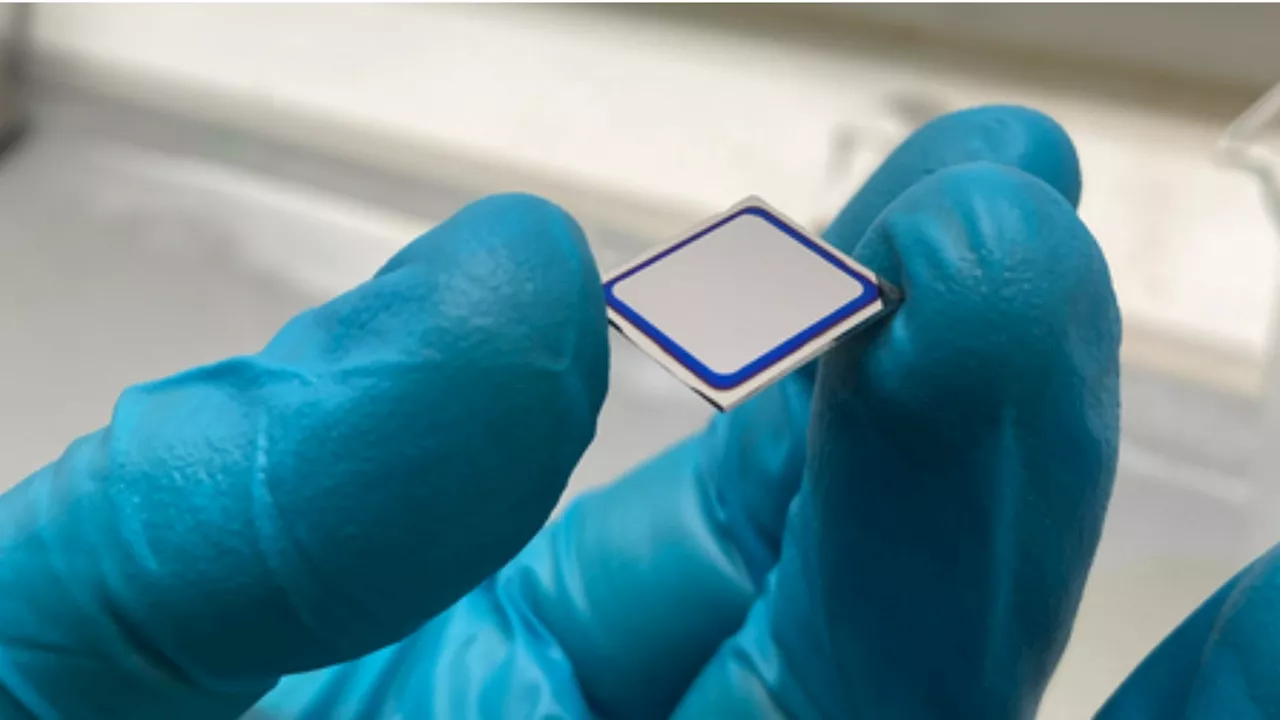Science, Space and Technology News 2024
This image shows a visualization of the calculated exciton transfer from an upper tetracene layer of a solar cell to the silicon substrate. The electron is shown in blue, and the electron hole in red. Credit: Marvin Krenz, University of Paderborn
With global conflicts making oil and natural gas markets less reliable, solar power stands to play an even larger role in helping meet Germany’s energy needs in the years to come. While solar technology has come a long way in the last quarter century, the solar cells in contemporary solar panels still only operate at about 22 percent efficiency on average.
Recently, the team used Hawk to simulate how excitons — a pairing of an optically exited electron and the electron “hole” it leaves behind — can be controlled and moved within solar cells so more energy is captured. In its research, the team made a surprising discovery: it found that certain defects to the system, introduced strategically, would improve exciton transfer rather than impede it.
In recent years, scientists have started to look for ways to reroute or otherwise capture some of that excess energy. While several methods are being investigated, Schmidt’s team has focused on using a molecule-thin layer of tetracene, another organic semiconductor material, as the top layer of a solar cell., it splits the resulting excitons into two lower-energy excitations in a process known as singlet fission.
Dr. Marvin Krenz, a postdoctoral researcher at the University of Paderborn and lead author on the team’s paper, pointed out the contradiction in the team’s findings compared to the current state of solar cell research. “It is an interesting point for us that the current direction of the research was going toward designing ever-more perfect interfaces and to remove defects at all costs.
France Dernières Nouvelles, France Actualités
Similar News:Vous pouvez également lire des articles d'actualité similaires à celui-ci que nous avons collectés auprès d'autres sources d'information.
 Studying Meteorites: Unlocking the Secrets of the Solar SystemALH84001, one of the most famous meteorites, has contributed to the field of astrobiology. This article explores the importance of studying meteorites in understanding the history of the solar system and the cosmos, as well as the potential for finding life beyond Earth.
Studying Meteorites: Unlocking the Secrets of the Solar SystemALH84001, one of the most famous meteorites, has contributed to the field of astrobiology. This article explores the importance of studying meteorites in understanding the history of the solar system and the cosmos, as well as the potential for finding life beyond Earth.
Lire la suite »
 Unlocking the Secrets of Neurodegeneration: New Potential Therapeutic Target IdentifiedScience, Space and Technology News 2024
Unlocking the Secrets of Neurodegeneration: New Potential Therapeutic Target IdentifiedScience, Space and Technology News 2024
Lire la suite »
 ‘Solar sandwich’ of old, new solar cells could unlock next-level powerA new type of solar cell made using selenium and silicon could offer a cost advantage while also delivering energy conversion efficiency.
‘Solar sandwich’ of old, new solar cells could unlock next-level powerA new type of solar cell made using selenium and silicon could offer a cost advantage while also delivering energy conversion efficiency.
Lire la suite »
![]() Unlocking the Secrets of Semiconductors With a Single CLIMAT MeasurementScience, Space and Technology News 2024
Unlocking the Secrets of Semiconductors With a Single CLIMAT MeasurementScience, Space and Technology News 2024
Lire la suite »
 Unlocking the Secrets Behind Galaxy FormationScience, Space and Technology News 2024
Unlocking the Secrets Behind Galaxy FormationScience, Space and Technology News 2024
Lire la suite »
 Spark of Life: Unlocking the Secrets of Ancient Mars Through FormaldehydeScience, Space and Technology News 2024
Spark of Life: Unlocking the Secrets of Ancient Mars Through FormaldehydeScience, Space and Technology News 2024
Lire la suite »
